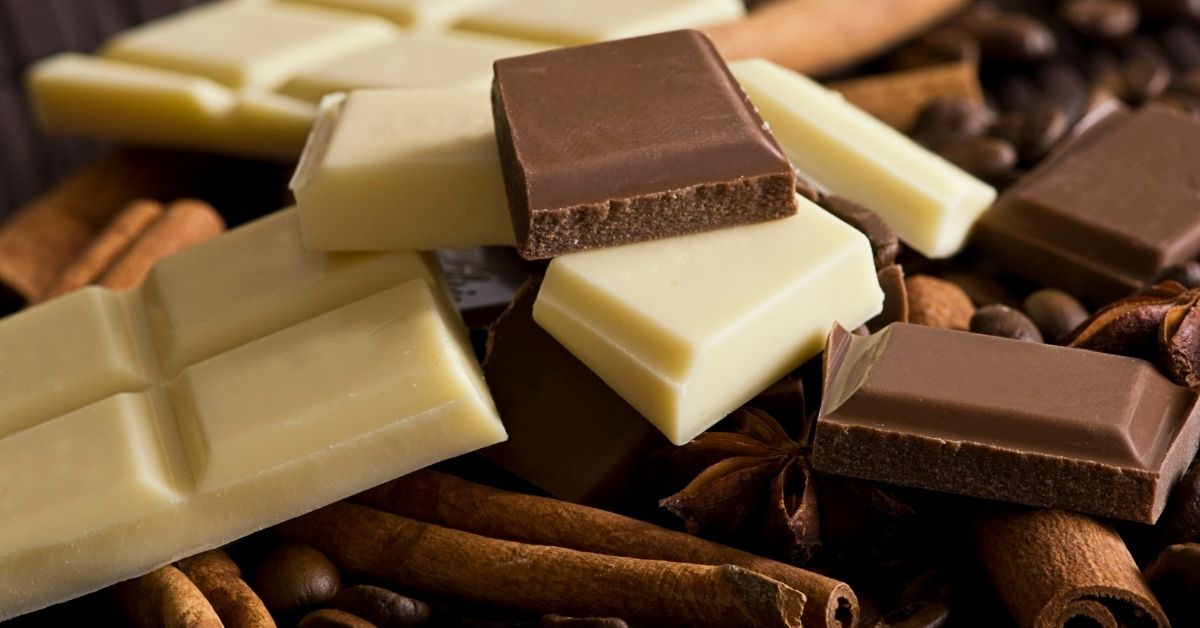Is Chocolate a Diuretic? [Everything You Need to Know]


In addition to chocolate’s awesome taste, many people consume it (to be more precise, dark chocolate with higher cocoa percentages) because of its traits and impact on health. (Dark) chocolate is rich in minerals and antioxidants. improves blood flow and lowers blood pressure, etc. Besides that, it is often questioned if is chocolate a diuretic as well?
Chocolate is diuretic. Because it contains small doses of caffeine and theobromine, consuming it in larger amounts will actually affect your bladder.
If you’re looking for a way to lift your spirits and increase your happiness, one thing is certain: chocolate is the answer. However, the ingredients in chocolate aren’t all the same, and neither are the chocolates. Continue reading this article if you want to find out more about the effects consuming chocolate will have on your body and discover its chemical compounds.
Does Chocolate Make You Pee?
Many individuals are aware that chocolate includes minor levels of caffeine. A serving of chocolate contains about 1/4 the amount of caffeine in a cup of coffee, which can have an unnoticeable diuretic effect.
On the other hand, consuming a lot of chocolate may contribute to frequent urination. Therefore, eating white chocolate, which often includes no caffeine, or dark chocolate, which contains more cocoa and may fulfill your appetite with a lower quantity, are both good options if you have an overactive bladder.
Is Hot Chocolate a Diuretic?
Any diuretic effect from hot chocolate would be attributed to the cocoa, which contains caffeine. However, the amount of cocoa, and thus the amount of caffeine in this drink, is relatively low, resulting in a low diuretic effect.
Hot chocolate on average contains about 5mg of caffeine per cup. To put this into perspective, an average cup of coffee contains approximately 150mg of caffeine, whereas a can of Red Bull contains approximately 80mg.
Which Compounds Does Chocolate Contain?
The cacao bean provides the compounds in chocolate that are thought to have beneficial effects. Therefore, the more cocoa percentage the chocolate has, the more healthy compounds it contains. Milk chocolate contains less cocoa than dark chocolate. White chocolate doesn’t have almost any compounds because it contains only cocoa butter and no cocoa solids. [1]
Chocolate, like coffee and tea, contains an alkaloid called theobromine, which is a type of substance produced by a variety of plants, including the cacao plant. Theobromine is chemically similar to caffeine and stimulates our brains in the same way, giving us a brief energy boost after consuming a delicious piece of chocolate.
Antioxidants such as epicatechin and gallic acid are abundant in raw cocoa beans. Unfortunately, the process of turning cacao beans into chocolate removes a lot of these chemicals. A minor quantity of antioxidants is still present in your chocolate bar, but it’s uncertain whether this is sufficient to provide many advantages.
Chocolate also contains high levels of phenethylamine, a chemical that induces brain cells to produce dopamine, a feel-good neurotransmitter.
What Happens When You Eat Too Much Chocolate?
Chocolate is one of those delectable foods that have numerous health benefits. But, as the saying goes, too much of anything is bad. Many individuals enjoy this delicious dessert, but other people are more sensitive to the caffeine and other substances found in chocolate.
Consuming too much chocolate can cause problems with the nervous and cardiovascular systems, as well as gastrointestinal issues, palpitations, sleeplessness, and additional systoles. Despite the fact that the advantages of chocolate outweigh the risks associated with excessive consumption, consumers should limit their intake.
Chocolate is abundant in caffeine, which boosts a person’s energy. When used in excess, however, it can cause negative effects, including irregular and fast heartbeats, disorientation, sweating, and anxiety. [2] Caffeine also has an acidic tendency, thus eating too much chocolate might cause gastrointestinal distress and issues such as heartburn, acid reflux, and irritated stomach ulcers.
Is Dark Chocolate a Laxative?
Aside from its overall health benefits, dark chocolate is also known for its laxative properties. Constipation sufferers now have yet another reason to include a square or two of high-quality dark chocolate in their diet on a daily basis.
Dark chocolate contains magnesium, which helps to relax the muscles in your digestive tract. Accordingly, you may consider consuming organic chocolate with at least 72 percent cocoa on a regular basis.
However, keep in mind that other chocolate-flavored meals are often heavy in sugar, which can be hard on your intestines and have a negative effect on your waistline.
Can Chocolate Keep You Up at Night?
As mentioned before, chocolate, even the most potent dark chocolate (which is normally used for cooking rather than snacking), contains half the caffeine as a cup of black coffee. Caffeine levels in milk chocolate and white chocolate are so low that they are unlikely to interfere with your ability to sleep.
There are many kinds of dark chocolate that have only 20-30 mg of caffeine. These may offer you a tiny surge of energy, depending on your caffeine sensitivity, but it’s unlikely to induce restlessness.
If you were hoping for the opposite outcome — that chocolate would give you a boost when you needed it the most – you might be disappointed by these findings.
However, that isn’t to say there aren’t any advantages to munching on chocolate in the afternoon. It can still help you think more clearly and improve your mood by releasing endorphins in your brain. This, along with a cup of coffee, may be just what you need to get through the last few hours of work without having to deal with the consequences of being unable to sleep later in the night.
